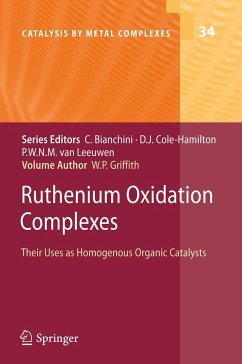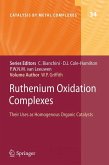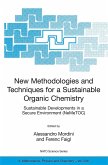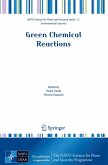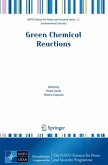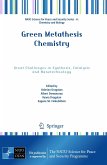Ruthenium Oxidation Complexes explores ruthenium complexes, particularly those in higher oxidation states, which function as useful and selective organic oxidation catalysts. Particular emphasis is placed on those systems which are of industrial significance. The preparation, properties and applications of the ruthenium complexes are described, followed by a presentation of their oxidative properties and summary of the different mechanisms involved in the organic oxidations (e.g. oxidations of alcohols, alkenes, arenes and alkynes, alkanes, amines, ethers, phopshines and miscellaneous substrates). Moreover, future trends and developments in the area are discussed.
This monograph is aimed at inorganic, organic, industrial and catalysis chemists, especially those who wish to carry out specific organic oxidations using catalytic methods.
This monograph is aimed at inorganic, organic, industrial and catalysis chemists, especially those who wish to carry out specific organic oxidations using catalytic methods.
From the reviews:
"The book contains nearly 2000 references spanning the time from the discovery of ruthenium in Russia ... . The text is well illustrated with formulae to clarify the various reactions described. Inorganic and physical chemists will also find material to interest and to inspire them to learn more about the transformations that ruthenium can promote. It is a book that is warmly recommended for synthetic organic chemists and will also interest researchers of other persuasions too." (Peter Maitlis, Platinum Metals Review, Vol. 55 (3), 2011)
"The book contains nearly 2000 references spanning the time from the discovery of ruthenium in Russia ... . The text is well illustrated with formulae to clarify the various reactions described. Inorganic and physical chemists will also find material to interest and to inspire them to learn more about the transformations that ruthenium can promote. It is a book that is warmly recommended for synthetic organic chemists and will also interest researchers of other persuasions too." (Peter Maitlis, Platinum Metals Review, Vol. 55 (3), 2011)

